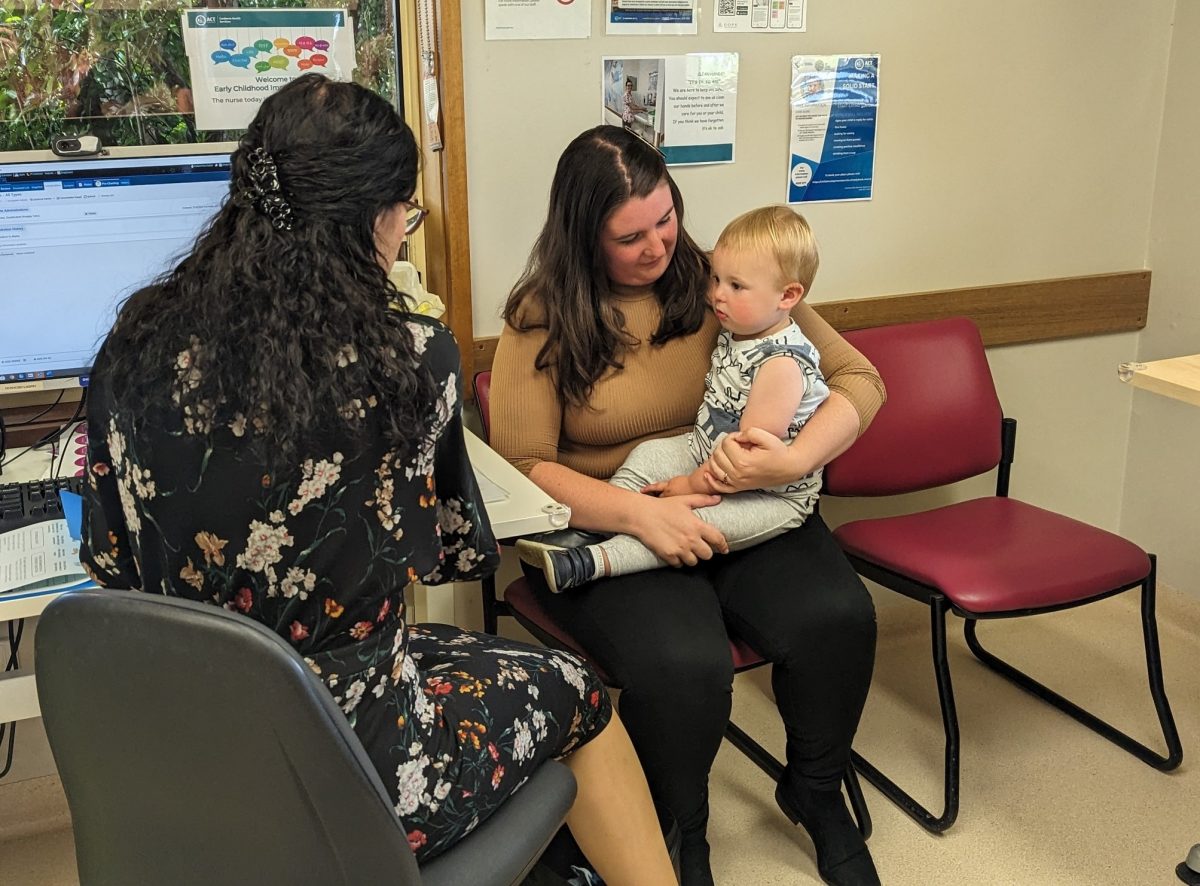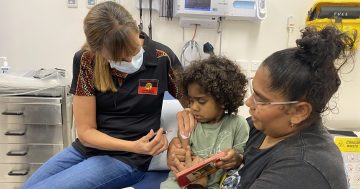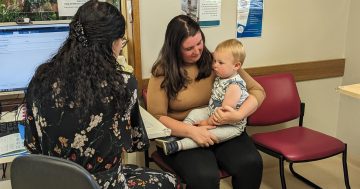
The TGA approved a vaccine to protect children against RSV in November last year. Photo: ACT Health.
Up to 7000 newborns and infants in the Territory would be able to access a free vaccine against a serious respiratory virus if the Canberra Liberals are elected to government.
The election commitment would see the RSV (respiratory syncytial virus) immunisation, Beyfortus, made available in 2025 at a budgeted cost of up to $2.6 million a year.
Canberra Liberals health spokesperson Leanne Castley said this was about being proactive ahead of the next winter season.
“RSV could rapidly turn severe, causing a range of respiratory illnesses including bronchiolitis or pneumonia, and was the most common cause of hospitalisations among infants and young children last year,” she said.
“Other states – including Queensland and Western Australia – managed to secure sufficient supplies of Beyfortus to vaccinate newborns as well as vulnerable infants, but the ACT failed to plan for this.
“It’s disappointing that this Labor Government weren’t [forward-thinking] for this winter season. That’s why we’ve announced it now, so that we’re ready for April next year.”
According to a study by BMC Public Health (published by the National Library of Medicine in December), Australian babies aged 0 to 6 months have higher rates of RSV testing, positivity and incidents.
They were also more likely to develop severe disease that needed hospitalisation, intensive care unit admission or respiratory support (compared to children and adults of all ages).
Aboriginal and Torres Strait Islander infants of the same age demonstrated higher rates of RSV infection and hospitalisation compared to non-Indigenous children.
“Passive immunisation strategies targeting infants in their first six months of life, either via vaccination of pregnant women or administration of long-acting monoclonal antibody during infancy, could effectively reduce RSV disease burden in Australia,” the report noted.
Beyfortus was approved for use by the Therapeutic Goods Administration (TGA) in November 2023.
Opposition Leader Elizabeth Lee questioned why Queensland and Western Australia had been able to secure vaccines for all young children, but the ACT had insisted on following NSW and just ensuring immunisations for vulnerable infants.
“We want to make sure that we put ACT children first: we know that it’s available, we know that it was available from November last year, and I think that it is important that we act on the advice and the evidence that is available to provide Canberra children with as much protection as possible,” she said.
“This program will go a long way in protecting vulnerable newborns and infants against RSV, and it is important that we take action and provide these immunisations for Canberra babies.”
ACT Health Minister Rachel Stephen-Smith defended her government’s approach, stating it had aligned with NSW to benefit from its “better purchasing power” and capacity to negotiate with pharmaceutical companies, particularly for new vaccines.
She explained NSW was following advice from the Australian Technical Advisory Group on Immunisation (ATAGI).
“This year, we are aligned with NSW, and we are aligned with the advice from the Australian Technical Advisory Group on Immunisation around ensuring that brand-new vaccine is available for the most vulnerable babies and young children in our community,” Ms Stephen-Smith said.
ATAGI has not yet provided advice for next year.
The federal government wants to include RSV immunisations in the PBS and the National Immunisation Register.
If that doesn’t happen, the Canberra Liberals would look to expand the program beyond 2025.














